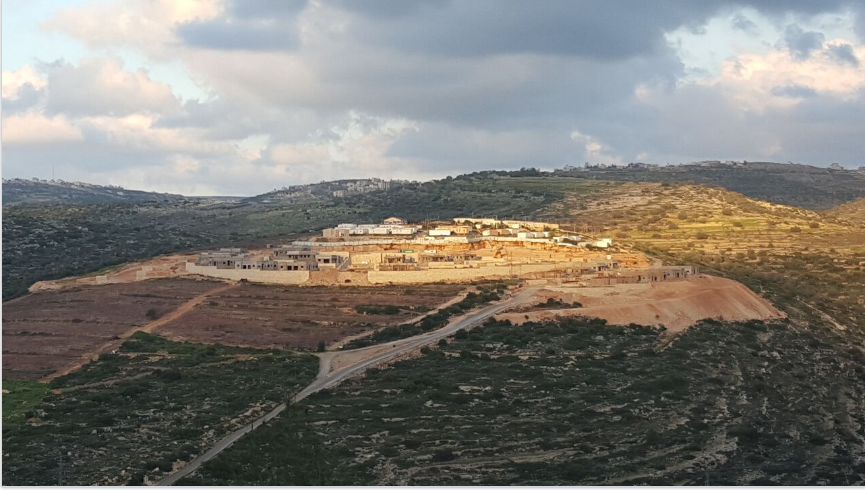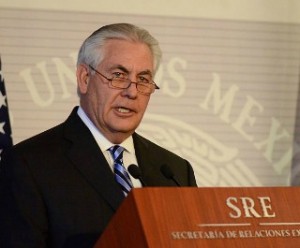In Contrast to The Declared Settlement Policy – Israel Retroactively Legalizes Another
Illegal Outpost, Thus Establishing another New Settlement
On 7 May 2017, the objections subcommittee of the Civil Administration’s High Planning Committee decided to
reject objections to the plan to retroactively legalize the illegal outpost of Kerem Reim (Also known as Nahlei
Tal, located West of Ramallah). The objections were discussed almost three years ago, in August 2014, but a
decision has only been made this week. The fact that it took the subcommittee three years to make this decision
illustrates the involvement of political echelons both in the stopping of the plan in the past and in its current
promotion.
Another Proof of No Restraint and No New Settlement Policy
On 30 March 2017, Prime Minister Netanyahu announced a new settlement policy in a cabinet
meeting. PM Netanyahu proclaimed that as a part of this policy no new illegal outposts will be established, and no
retroactive legalizations of illegal outposts will take place. The decision to promote the plan for the illegal
outpost of Kerem Reim stands in direct contradiction to the new declared policy. The promotion of the plan is a
part of a process of establishing a new settlement in the West Bank by retroactively legalizing the illegal
outpost, which was established in 2012.
The Illegal Outpost of Kerem Reim and The Plan for Its Retroactive Legalization
In 2012, a new illegal outpost named Nahlei Tal (later changed to Kerem Reim) was established West of Ramallah.
Several mobile homes were put in place, roads were established illegally, several families moved in and connected
to infrastructure – of course – illegally. The mobile homes were placed on “state lands,” while some of the roads
and infrastructure were on private lands. Nahlei Tal or Kerem Reim was the first outpost established since 2005,
after the Sharon government committed not to build any new illegal outposts, and during the period of the Sasson
Report and Peace Now’s petitions to evacuate illegal outposts.
Shortly after the establishment of the illegal outpost, on 9 May 2013, the Defense Minister approved the
promotion of a plan for 255 housing units in order to retroactively legalize the illegal outpost as a neighborhood
of the Talmon settlement. The plan was approved for depositing and published for objections, and in August 2014 a
hearing took place, during which residents of Al-Mazra'a al-Qibliya – the village which lands were taken by the
outpost – voiced their objections together with Bimkom. Since then the plan
had been frozen until this week.
During 2016, massive foundations work began to take place at the illegal outpost for the purpose of
constructing permanent homes. All of this was done illegally, without the plan being approved and without the
government approving the establishment of a new settlement.
A Peace Now study found that
among those involved in the establishment of the illegal outpost, beyond the small group of settlers that
established it, are the Benjamin Regional Council as well as the Amana organization. After exposing the illegal
construction work Peace Now demanded form the Attorney General the opening of an investigation against those
responsible for the illegal construction. After months without a reply, Peace Now submitted a petition to the High Court of
Justice, demanding an investigation on the matter and asking to stop the illegal construction. On 9 April 2017, the
High Court issued a temporary stop work injunction, prohibiting any construction work in the outpost as long as the
petition is ongoing.
Apparently, due to the petition, the government decided to promote the plan in order to argue at the High
Court that there is no need to enforce the law on the illegal construction, as it will soon be approved. An
official response by the state to the High Court should be submitted by May 30 2017.
It is important to note that even if the plan will be approved, the illegal activity conducted up until this point
cannot be ignored, and this is what Peace Now seeks to achieve in its petition. It is through this type of illegal
activity – that proceeds in the settlement enterprise without any law enforcement – that a small group of settlers
determines Israel’s settlement policy and influences the future of both Israelis and Palestinians.


 Washington, DC - Americans for Peace Now (APN) commends Secretary of State Rex Tillerson and his
staff for acknowledging the important role that Israel’s civil society and particularly Israeli progressive
non-profit organizations play in Israeli society.
Washington, DC - Americans for Peace Now (APN) commends Secretary of State Rex Tillerson and his
staff for acknowledging the important role that Israel’s civil society and particularly Israeli progressive
non-profit organizations play in Israeli society.